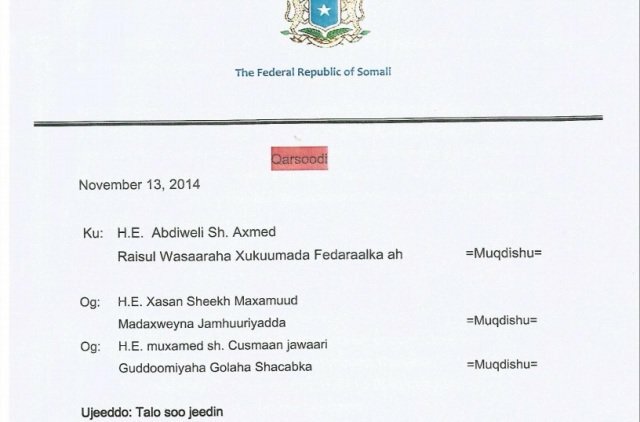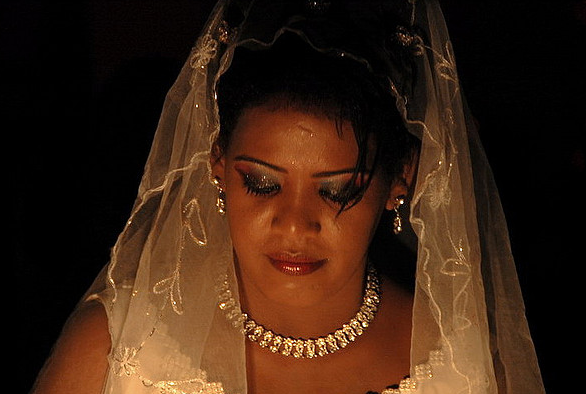Somali Diaspora Stories of Marriages Gone Wrong
By Hassan M. Abukar — I have lived and worked in the United States for a long time now, but just when I think I have seen enough of the life of the Somali in the diaspora, something new comes up.
I was recently driving through the US state of Texas on my way to California when my train of thought was interrupted by a phone call from a female friend.
“Hassan, I will never talk to you again,” she said.
“What did I do?”
“Two years ago, you wrote about my brief marriage.”
“No, I did not.”
“In your piece, ‘Spouses in Crisis,’ you called it a ‘blink-and-you –missed-it’ marriage.”
“Did I mention your name and your former husband’s?”
“No.”
“Then it was not you. It was about a woman who was married to a control freak. Your ex was not a control freak.”
“Never mind, just forget about it,” she said and then changed the topic.
The above call is an example of how prevalent aborted or short term marriages are in the Somali communities in America.
The example of my friend is by no means the exception. There are plenty of examples of similar incidents which I recount below. These are true stories, of neither friends nor foes, relayed to me by people I’ve met in the course of my everyday life. Names and locations have been changed to protect individual privacy of the people involved.
I Object
“Abdi” is a cleric based in Oregon. He has conducted a lot of marriages and is frequently called upon to travel to other states. He has a sense of humor and is quick to remind you that he is a man of religion. “Would you mind if I name-drop and mention God?” he inquired as I talked to him recently.
I asked him if he had ever conducted a marriage ceremony in which someone objected. He looked at me smiling and paused for a few seconds.
“Well, it happened to me not once, but twice,” he said. “In my line of work, I guess, it is an occupational hazard.”
On both occasions, as Abdi was conducting a marriage ceremony, someone in the audience shouted at him to stop the proceedings. It is not part of Somali culture for an officiating cleric to ask if any of the attendees of a marriage ceremony have an objection, that famous “speak now or forever hold your peace” is unknown.
It turns out the brides were already married and about to make the cleric to commit a sin of betrothing them to someone else.
“In one case, a man said his brother in Kenya was still married to the would-be bride,” the cleric said. This was an embarrassing moment, of course, he added, and he had no choice but to confer with the marrying couple in private to clarify the matter. The ceremony had to be stopped.
Dowry Blues
“Ali,” a young man in his late twenties, lives in Columbus, Ohio. He has attended many weddings, he said. Columbus, after all, has the second largest Somali community in the U.S. after Minneapolis. One marriage ceremony however left a bad taste in his mouth.
“It was the weirdest marriage ceremony that I ever attended,” he said.
Ali explained that it was for a young couple in their twenties, and more than a hundred people were present when the ceremony commenced. The food was ready to be served and he could smell the aroma of the lamb, rice, and samosas. The officiating cleric asked the groom if the agreed-upon dowry of $10,000 was fine.
“$10,000?” the groom screamed.
“Yes, that is how much the bride is asking for,” clarified the cleric.
“No way, I can’t pay $10,000!”
“The dowry can be paid now or at a later date. It is a matter between you and the bride.”
“No, I can’t pay it now or later.”
The audience was shocked. Hadn’t these two young people already discussed how much money the groom would give to the bride? A dowry is the money or the property the bride is entitled to before a marriage can be properly conducted. It can be a little money (sometimes even something symbolic) or a hefty sum, depending on what the bride wants. The groom has the option to decline the offer of course, but then there won’t be a marriage.
In this case, the groom refused to budge, and the bride insisted on the $10,000.
“What happened next was disappointing and heartbreaking,” Ali recounted. “There was no marriage that day or later between the couple.”
Needless to say, according to Ali, nobody ate at that failed ceremony.
One man was heard muttering, “What a waste.” Oddly, when asked what he meant, he mentioned the huge pile of food that was left untouched. The guests were so disgusted with the outcome that they declined to take any of the food.
Ali has a piece advice for those who are planning to get married.
“Do everyone a favor and decide what your dowry will be before you drag us to an event where we will end up not enjoying the ceremony or the food.”
The Qudbo Sireed or Secret Marriage
For “Shamso,” a woman in her forties, it was a different experience. She has four children from two previous marriages. A Somali man approached her and asked her to marry him. She had known him before in her town, and she said he was a respected man who handled himself well.
“The chemistry was instant and powerful,” she said smiling. “In fact, I succumbed to his magnetic personality.”
However, there was a stipulation in the man’s proposed union: It would be what the Somalis call “qudbo sireed” (a secret marriage). He wanted to continue living in his place and Shamso would live in hers until they were ready to officially publicize their marriage and live together. Only five people would know about their matrimony. Shamso agreed.
“I have the benefit of hindsight now, and in hindsight, I realize this was a huge mistake,” she said with irony.
He brought three other men with him, a cleric and two witnesses. The marriage ceremony was short and afterward, Shamso simply drove home. After she reached her house and parked her car, however, she received a call from the officiating cleric. He was in a panic, she said.
“You know, I forgot to ask you about your dowry. How much is it?”
“$10,000,” she replied.
There was an awkward silence.
The cleric asked her if she could lower the amount because the groom was not well-off. She told him she had her reasons for asking for such an exorbitant amount.
“Let me ask the groom,” the cleric replied.
She could hear her new husband mumbling in the background. The cleric kept asking the husband if the sum was fine. The groom finally, and reluctantly, accepted it.
Shamso sensed that both the cleric and her husband were not happy with her.
“The blessed marriage is the one with a reasonable and less cumbersome dowry,” the cleric admonished her.
Well, after a year, Shamso’s new husband told her he wanted to get out of what he wryly called their “chaotic relationship.” It seemed fate had thrown her a real curve ball.
“I did have a premonition, from day one, that our union would be short-lived even though I cared a lot about the man,” she admitted.
She received no spousal support from him in that year.
Oh, and that controversial dowry?
Shamso did not collect a single dollar. She had a good job, and her husband simply wanted her to take care of herself financially while he collected all the fringe benefits that came with the institution of marriage.
“Unfortunately, I allowed him to do that,” Shamso said.
Ten thousand dollars is not small change. Shamso confessed that it is a tidy sum “that can send any woman on a shopping spree.” However, she had a different reason for requesting that amount.
“I was sending him a message that marriage is a big responsibility and not child’s play,” she said.
Shamso is not the type of a woman that lets bygones be bygones. She decided that her husband had to pay a non-monetary price for his frivolous and laissez- faire attitude toward marriage.
In what she would call “the most deranged vengeful action” she had ever taken, she told all the people in her town that she was married to him. He was so furious that he moved away to Wisconsin. It turned out there were two other victims, just like her, and they also dumped him.
Hassan M. Abukar is a writer and political analyst. He can be reached at.
This article was first published SAHAN JOURNAL
Comments
comments
 Calendar
Calendar





































